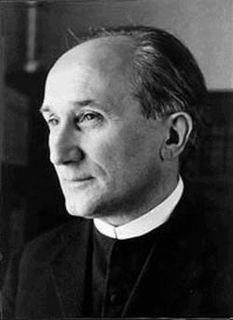A Quote by Victor Hugo
The truth of an upright man must be accepted on his own terms. Moreover, since natures vary, we must agree that all the beauties of human excellence may be fostered by faiths that we do not share.
Related Quotes
No man must encroach upon my province, nor I upon his. He may advise me, moderately and without pertinaciousness, but he must not expect to dictate to me. He may censure me freely and without reserve; but he should remember that I am to act by my deliberation and not his. I ought to exercise my talents for the benefit of others; but that exercise must be the fruit of my own conviction; no man must attempt to press me into the service.
There are three musts that hold us back: "I must do well. You must treat me well. And the world must be easy." And I sometimes think that as long as we keep the second must, which is socially learned, then some screwballs 100 years from now will manufacture atomic bombs in their bathtub and maybe annihilate the whole human race because they demand that the rest of the world must agree with their dogmas. When we don't agree, they may zap us.
Truth is power, but only when one has patience and requires of it no immediate effect. And one must have no specific aims. Somehow, lack of an agenda is the greatest power. Sometimes it is better not to think in terms of plans; here months may mean nothing, and also years. Truth must be sought for its own sake, its holy, divine greatness.
Human stories are practically always about one thing, really, aren't they? Death. The inevitability of death. . . . . . (quoting an obituary) 'There is no such thing as a natural death. Nothing that ever happens to man is natural, since his presence calls the whole world into question. All men must die, but for every man his death is an accident, and even if he knows it he would sense to it an unjustifiable violation.' Well, you may agree with the words or not, but those are the key spring of The Lord Of The Rings
It is equally clear that a government must govern, must prescribe and enforce laws within its sphere or cease to be a government. Moreover, the individual must be independent and free within his own sphere or cease to be an individual. The fundamental question was then, is now, and always will be through what adjustments, by what actions, these principles may be applied.
This sutura gives example about the purpose of relationship. A son of enemy who wants to uproot his own father, should be treated as friend and shold be protected. This may be called opportunism but is and should be necessary part of polity and statesmanship. Moreover, if a father is not aan upright man to have friendship with his sone can be a meritorious peson. So it is better to protecdt him.
Gandhi said 'One cannot do right in one area of life whilst he is occupied in doing wrong in another; Life is one indivisible whole.' This point of wisdom is profound. A commitment to excellence is not just reserved for a few select areas of your life - it must be reflected in everything you do. Your diet must reflect your commitment to excellence. Your physique must reflect your commitment to excellence. Your personal habits must reflect your commitment to excellence and your thoughts must reflect a commitment to excellence.






































